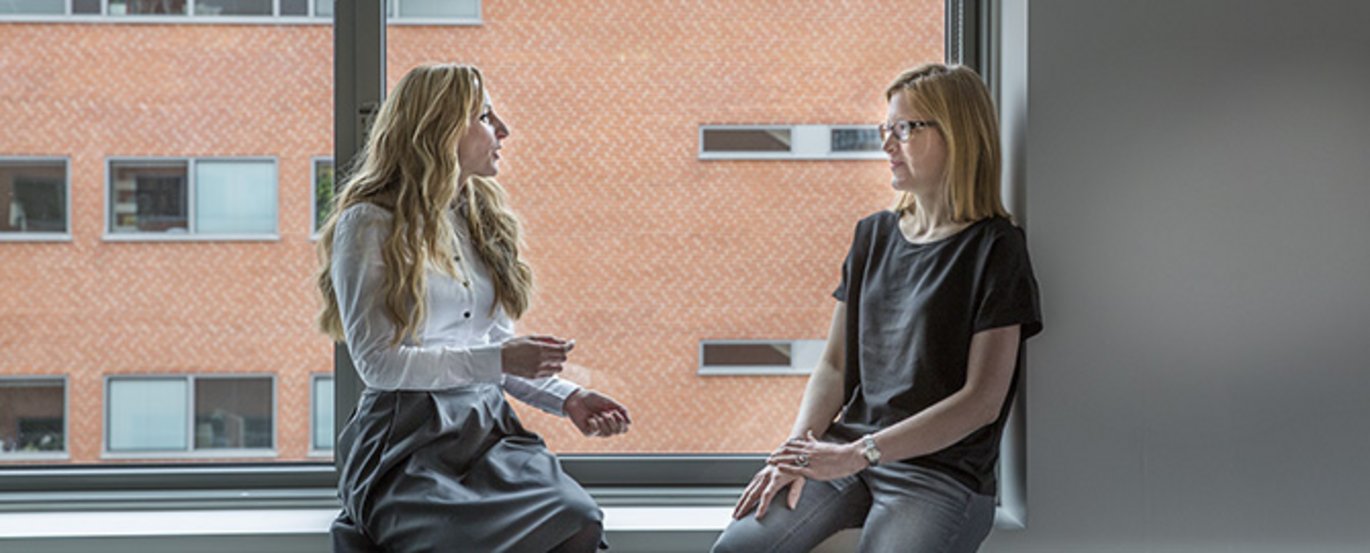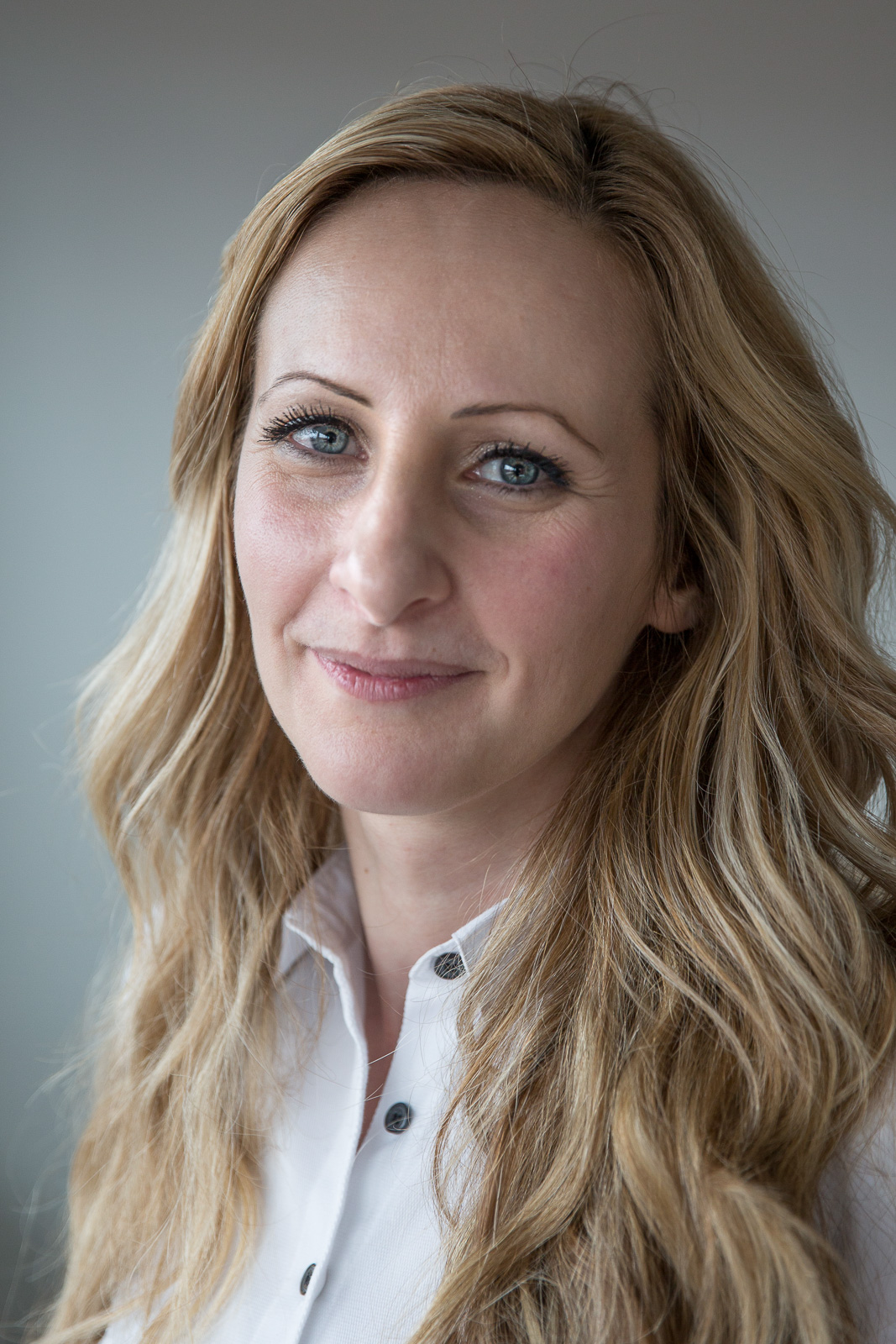What is the next and best step for my career?
The first rungs on the way up the academic career ladder are often characterised by fixed-term positions and uncertainty. It can also be difficult for junior researchers to find the best strategy for career development. Postdoc Marija Banovic therefore signed-up for AU's "Empower Talent!" mentorship programme. Her mentor, Associate Professor Irene Pollach, gives her the advice she wishes she had received.



At their very first meeting at the kick-off event for AU’s mentorship programme “Empower talent!” last November, postdoc Marija Banovic and her mentor, associate professor Irene Pollach, hit it off together.
As a junior researcher Marija Banovic noticed how easily she became so immersed in her research that it became difficult to stay focused on an overall strategy and what the next and best step in her career development would be.
"A mentor gives you the chance to get a valuable and more objective assessment of your personal development. As well as personal support, the mentorship programme also gives you the opportunity of professional socialisation, which is also quite important for improving your chances of finding a job," says Marija Banovic on her motivation for joining the mentorship scheme.
The senior management team has recently adopted a new action plan aimed at getting more women to pursue a career in the world of academia. The higher you move up the career ladder in the world of research, the fewer women you find at the Danish universities. Among all professors at AU, only 19 per cent are women. In an article on the au.dk website the senior management team highlight the mentorship programme as one of the initiatives in their action plan that can hopefully help to strengthen female talents at AU.
Academia makes high demands
Irene Pollach works as an associate professor at the Department of Business Communication, School of Business and Social Sciences (BSS), while Marija Banovic is a postdoc at the MAPP Centre – Centre for Research on Customer Relations in the Food Sector, BSS. Even though the two women have only held four meetings so far, they have found it easy to engage in confidential discussions. Neither of them can think of any instances where they have felt that their gender has led to them being overlooked at AU. But they point out that the world of academia is in itself a demanding place to pursue a career.
"Academia is sometimes compared to a decathlon, because you need to have a wide range of different skills to be successful. You need to be nerdy and able to spend days at a time alone reading and writing. But you must also be good at networking with others at conferences and be an entertainer in the classroom who inspires the students," says Irene Pollach.
Both women emphasise that life as a researcher is characterised by uncertainty until you are offered a tenured position. As a postdoc, Marija Banovic has no guarantee of getting a tenured job when her fixed-term position ends, but she nevertheless tore up both her own and her daughter’s roots and moved from her previous job in Dublin to Aarhus.
"I think it's important for us to create more attractive working conditions if we want to get more women to pursue a research career, particularly an international career. We need more advice and assistance when we move to Denmark," says Marija Banovic.
That being said, she is acknowledging the fact, that the Department included her in the Department Council although she does not speak Danish. The difficulties she is referring to is more practical.
For instance she has had difficulty finding a decent place to live and has therefore been forced to be separated from her daughter for a time. She also mentions the lack of an international childcare centres at or near the campus as another big challenge for her stay at AU, and one that is also an obstacle to her career.
Her mentor backs her up:
“Talent alone isn’t enough. You also need to be passionate about having an academic career," says Irene Pollach.
Mentorship programmes at AU
"Empower talent!" is a mentorship programme that matches postdoc employees or assistant professors with more experienced colleagues at associate professor or professor level.
AU has several different mentorship programmes aimed as different target groups. There are programmes for Danish students, international students, PhD students, employees and alumni.
Find out more about the different programmes at www.au.dk/mentor.
A confidential space
Together with her mentor, Marija Banovic has created a confidential space where she feels she can speak freely and openly about anything she has on her mind:
"I feel completely comfortable together with Irene. We’re not from the same department, which means she can view my career and its development more objectively. Irene also helps me to get things off my chest when it comes to all the difficulties I can run into in my everyday life that I don’t feel able to share with my colleagues," says Marija Banovic and continues:
"We talk about many different things related to my research and daily work, but mostly about topics that are related to my career development and opportunities for getting a better tenure-track academic position."
The Danish penchant for hugs, singing and eating breakfast together
Irene Pollach has lived in Denmark for eight years. She is originally from Austria, while Marija Banovic has taken her degree programme in Portugal but was born in Yugoslavia. So Danish workplace culture – and the simple fact of being a foreign researcher in Denmark – is something they talk about a lot.
"Why do Danes hug all the time? There is also a lot of singing at parties and they like to eat breakfast together. The whole thing can seem a little cultish, but with a lot of laughter and cake as well as a strong social community. If you come from a country where people are generally more reserved then you have to learn to open up," explains Irene Pollach.
Between 2011-2015 she was a member of AU's Diversity Committee, which was involved in the action plan for more women in research and the creation of the “Empower Talent!" mentorship programme. So it was natural for her to register as a mentor. She has always been curious about getting an insight into how other departments are organised, as this can provide new perspectives on the daily organisation of her own department. She also made a conscious decision to mentor a researcher with a foreign background.
Danish a must at AU
"We share many of the same experiences and face the same challenges, such as the administrative language at AU being Danish. This slows your development because you cannot take part in any administrative or managerial activities or decisions during the first five years. At least, that’s how long it took me to get a good grip on the Danish language. It’s also something that Marija is struggling with," explains Irene Pollach.
"I give her the advice I wish I had received," she adds.
And one piece of advice is to learn Danish quickly.
The prospect of a tenured position means a lot for the choice of career path
Marija Banovic and Irene Pollach agree that the efforts being made to get more women to pursue a research career are important. In relation to the initiatives in AU's action plan, they applaud the university’s wish to increase the use of tenure track models. Positions at assistant professor level make a subsequent permanent tenure appointment as associate professor possible, if you a receive a positive academic assessment after the fifth year of employment.
"Many of my female friends have left the university and academia in favour of permanent jobs in other industries. As a postdoc, you aren’t certain of getting a job, so I think that more tenure tracks are a good idea," says Marija Banovic.
Translated by Peter Lambourne

